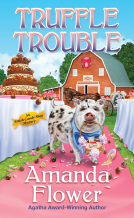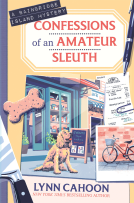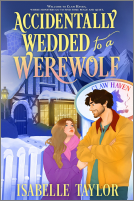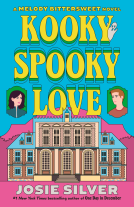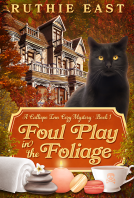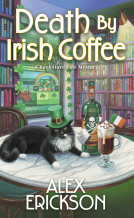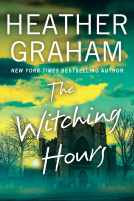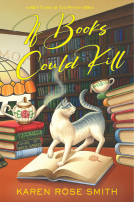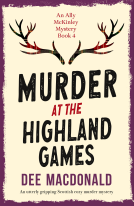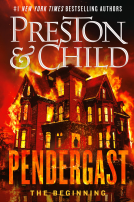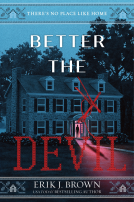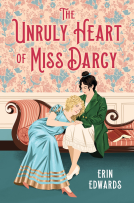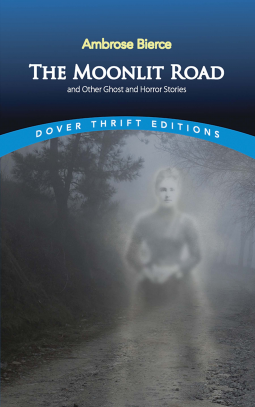
The Moonlit Road and Other Ghost and Horror Stories
by Ambrose Bierce
This title was previously available on NetGalley and is now archived.
Send NetGalley books directly to your Kindle or Kindle app
1
To read on a Kindle or Kindle app, please add kindle@netgalley.com as an approved email address to receive files in your Amazon account. Click here for step-by-step instructions.
2
Also find your Kindle email address within your Amazon account, and enter it here.
Pub Date Nov 18 2015 | Archive Date Mar 01 2016
Description
This stimulating and provocative collection of twelve of Bierce's finest ghost and horror stories abounds in crimes of passion, restless specters seeking revenge, haunted houses, forewarnings of doom, and sound minds deranged by contact with the spirit world. Selections include "The Eyes of the Panther," a chilling account of a young woman's supernatural link to a beast of the forest; "A Watcher by the Dead," in which a madcap wager has ghastly consequences; "The Man and the Snake," a hallucinogenic encounter between serpent and human; "Moxon's Master," a nineteenth-century caveat against the coming Machine Age; the celebrated title story; and seven others.
Available Editions
| EDITION | Paperback |
| ISBN | 9780486400563 |
| PRICE | $3.00 (USD) |
Average rating from 31 members
Featured Reviews
 Laura B, Librarian
Laura B, Librarian
A lot of the time my complaint with short stories is that they really aren't all that short, and I think an author can often do more with an actually short story than with a story that is long, but too short to be a book or novella. So I appreciated that these stories were quick and got right to the point, especially since that works particularly well with spooky stories.
 Educator 304761
Educator 304761
Ambrose Bierce is one of those authors whose place in the canon of American Literature proper is too-often overlooked -- and I’m not certain why. This collection brings together some of Bierce’s short fiction, and it shows his relationship to better-known authors who came before (and who have come since). Bierce (1842-1914) falls between Edgar Allan Poe (1809-1849) and H. P. Lovecraft (1890-1937) in both chronology and writing style and subject. That’s not to construe Bierce as a bridge between early horror writers and later ones; his macabre fiction is foundational in the development of American horror fiction.
This collection of stories takes readers all over the American continent (and England) as it looked in Bierce’s day: from a haunted shanty in the Sierra Nevadas, in which we meet a pair of ghosts from Edinburgh, to a haunted shipwreck off the coast of mother England herself. Bierce takes readers into dark corners of a dark world in these stories, often presenting us with occurrences of which readers may never have thought; in one story, “John Bartine’s Watch”, we find a loyalist to King George who both deplores George Washington and is terrified of looking at his pocket watch. That story also shows a side of Washington and his rebels that present-day readers may not have considered, with lines such as “[My great-grandfather] was permitted to say farewell to his weeping family, and was then marched away into the darkness which swallowed him up forever” (Loc. 1130). Such was the fate of John Bartine’s ancestor, who supported King George, at the hands of colonists loyal to Washington.
Such lines are characteristic of Bierce’s fiction, the style of which matches his famous wit and satire in his journalism. The settings of his stories also mirror his travels around the continent which, to me at least, is an insight into how the author may have been inspired by his surroundings. Lines such as the one above are characteristic of his wit, while others, such as this one from “The Secret of MacArger’s Gulch”, show Bierce’s influence to Poe. “It was as if two pictures, the scene from my dream, and my actual surroundings, had been blended, one overlying the other, until the former, gradually fading, disappeared, and I was broad awake in the deserted cabin” (Loc. 600). It puts me in mind of Poe’s famous couplet “All that we ever see or seem / is but a dream within a dream”. The two quotes I mentioned are certainly not alone in this collection, which is a wonderful (and affordable -- it’s a Dover Thrift Edition, which is famous among academics for low-cost reading copies of books) read.
The only word of warning I would offer to readers involves Bierce’s writing style. Some may call it dense, some may say he “tells” too much instead of “showing”, but Bierce is a product of his time, and his work reflects the style and conventions of fiction writing -- all writing, really -- of his time. Though his style may be daunting, it’s worth anyone’s time and effort to pursue his fiction.
Ambrose Bierce remains--in my opinion--one of the early masters of the "quiet, atmospheric" ghost tales. So many of his stories have stood the test of time and are STILL able to bring genuine chills to the reader, no matter how many times certain selections are read.
This collection brings together twelve of his ghostly tales, ranging from the well known ("The Boarded Window") to lesser known ("Moxon's Master"). The majority of these tales play on man's innate fear of things that come naturally: the dark; a decaying, abandoned structure; an unexplained sound breaking the silence of the night . . . As Bierce states in his tale, "The Moonlit Road", "Fear has no brains; it is an idiot". There are those things we universally "fear" without any sort of reason to accompany them. These are the things that Bierce so masterfully uses to manipulate our emotions and bring about that dread of the unknown.
Personal favorites of mine in this collection include "The Middle Toe of the Right Foot", "The Moonlit Road", and "Moxon's Master".
Highly recommended to fans of atmospheric horror.
*I received an e-copy of this book through NetGalley in exchange for an honest review.*
 Althea M, Book Trade Professional
Althea M, Book Trade Professional
***** The Eyes of the Panther
"See these eyes so green / I can stare for a thousand years Colder than the moon... you wouldn't believe what I've been through."
A young woman refuses to marry her suitor, although she professes to love him. Her reason? She believes she is insane, she claims. Of course, there has to be more to her story than that... and this is that story, which starts one dark night in a poor woodsman's cottage on the wild frontier.
**** The Moonlit Road Heavily ironic, 'The Moonlit Road' is an excellent example of Bierce's "mordant wit." Three different perspectives on a brutal death unpeel layers of truth - and reveal a none-too-flattering outlook on humanity.
*** The Boarded Window Is this one supposed to be a tie-in to 'Eyes of the Panther,' or is it just similar in theme? I'm not sure. I felt that it was a less-successful variation of the story, as there's no explanation or seeming meaning behind why the 'creepy' events occur.
An old hunter-trapper, out on the frontier, has lived alone in his modest cabin for years. His one window has remained boarded shut for as long as anyone can remember. This is the story of why he boarded that window for good.
*** The Man and the Snake Staying over at a friend's house, a man picks up some bedtime reading - which happens to be an outdated scientific book mentioning the purported mesmeric abilities of snakes. It just so happens that the house belongs to a herpetologist, so the visitor is not that surprised when he finds a snake in his room. But although he skeptically scoffed at the phenomena attributed to serpents, perhaps the power of suggestion is not something he's immune to. Or perhaps, some true supernatural power is as work...
*** The Secret of Macarger's Gulch A hunter caught far from home at sundown decides to camp out in an abandoned and dilapidated house. However, he doesn't pass a restful night - he's plagued by vague fears and strange dreams. Only much later does he learn the bloody history of Macarger's Gulch and discovers how close to the truth his dreams came.
*** The Middle Toe of the Right Foot What? You don't think a reputedly haunted house is the ideal location for a duel to the death?
A group of obnoxious and arrogant young men accept a stranger's challenge - but the contest doesn't end up quite how any of the parties expected. It does end in death, however.
And the event is, of course, linked to the brutal murders that took place in the house years before.
It's a good ghost story, but I thought it would've been better with a bit more explication - some of the elements just didn't make a huge amount of sense to me.
**** A Psychological Shipwreck While on board a ship, a man takes ill and has all manner of hallucinations - hallucinations which turn out to be eerily true - of another ship. Really well-crafted, and quite spooky.
**** A Holy Terror There are a couple of bloody brilliant things about this story. First, it's just terribly funny. Bierce just keep edging in these horribly astute little witty observations. It's great. Second, it's a historically wonderful depiction of the gold rush era (and its fallout.)
It's also a horror story, and that part of it isn't quite as strong. It relies too heavily (and twice) on "The experience was just so awful that they dropped dead." If you're going to pull that one, it has to be a truly, truly awful experience... and I didn't think the ones here managed it. I'll forgive that though, because reading this was just wholly a pleasure.
**** John Bartine's Watch A psychologist notices that his friend seems to have a peculiar obsession with his watch, and decided to do a little ad hoc experiment. But all doesn't end well... The watch was inherited from a great-grandfather who was never seen again, after being arrested by 'that damned traitor, Washington, and his ragamuffin rebels!' - and some evil taint clings to it.
*** Beyond the Wall Upon visiting an old friend, the narrator finds him much, and distressingly changed. Sick and alone, in an eerie house that seems haunted, he tells a cautionary tale...
The moral here may be, 'carpe diem,' but Bierce also gets in a bit about the foolishness of the 'upper class' giving themselves airs.
*** A Watcher by the Dead This is another Bierce story where the simple reality of 'dead bodies' is presumed to be a lot more fear-inducing than it is. Here, a group of doctors make a bet that basically, anyone who's not a doctor or a soldier, who spends the night alone with a corpse will be unable to take it, and will go insane. So, the guy who takes the bet sets himself up to stand vigil... and well, the 'prank' goes horribly wrong I dunno, the story seems to ignore the long-standing and respectful (and non-horrific) of standing vigil over the dead...
**** Moxon's Master It's an early sci-fi robot story! Adding an extra star just for that. A machinist has seemed unduly preoccupied with the philosophy of life, of late. He's been bringing up topics such as whether machines might be sentient to his friends. Little do they know these questions are not just academic - they have something to do with the invention he's kept concealed in his workroom.
It all ends in grand Frankenstein/paranoid fashion.
Many thanks to Dover and NetGalley for the opportunity to read. As always, my opinions are solely my own...
 Soudha P, Reviewer
Soudha P, Reviewer
I'll be honest here. Prior to reading this book, I was not in any way familiar with Ambrose Bierce. So I'm in fact really glad Dover Publications has compiled this nice little collection of some of his horror stories. I suppose that by modern standards, readers would rather see these stories as psychological and gothic horror stories rather than actual scary stories. I really enjoyed this collection regardless, as each story was nicely crafted and came with a unique twist at the end. And I'm very happy to say that I didn't see any of those endings coming. And that's how you know you've just read a great horror story! To me, Bierce is a bit the American E.A. Poe. I loved diving into the world his stories were set in and rediscovering horror through the voice of a man who lived more than a century before my time. To conclude this review, I'll just say this: I'm very glad to have found this collection and I'll definitely be reading more of Bierce's stories in the future. Thanks to the publisher for putting forth this collection and reintroducing these stories to modern readers!
 Ionia F, Reviewer
Ionia F, Reviewer
I didn't find that nay of these stories were particularly frightening. The author was a huge talent, and did a great job choosing words and setting up the ambiance of his stories, but I felt like he lost me toward the end of each one. Perhaps with his writing style, it was intended to leave the reader drawing their own conclusions, but I want my horror books to be truly horrifying, and these just didn't do that for me.
If you are a fan of thoughtful ghost and horror stories where one must use the imagination to make the book work for them, then this would be a good choice.
This review is based on a complimentary copy from the publisher and was provided through Netgalley. All opinions are my own.
 Nicola M, Reviewer
Nicola M, Reviewer
Ambrose Bierce (1842-1914) was a Victorian author of the weird and macabre specialing in ghost stories. Though during his life he was more renowned as a satirist, journalist, and editorialist. Thankfully, we've remembered him for his eerie tales. I've come across his stories in anthologies several times but this is the first author specific collection I've read. I had come across three of these stories before, but they make good re-reading. Bierce is comparable to Poe but easier to read. The stories in this collection have been selected from the 1909-1912 editions of "The Collected Works of Ambrose Bierce" and show a mix of his ghost and as the title calls them "horror" stories (but I wouldn't necessarily give them that classification, but more general"weird tales"). I liked the weird, macabre tales the best and I'd recommend him to your reading list for those interested in Victorian ghost stories or tales of the weird
1) The Eyes of the Panther - A young woman refuses to marry a man repeatedly and he demands to know why so she tells him she is insane and proceeds to tell him a story. It's a good story but it made me think too much of the original movie "Cat People", perhaps they got the idea from this story. (3/5)
2) The Moonlit Road - I hadn't recognized just by the title but it came to me quickly that I've read this one before. A son is called home from college urgently to discover his mother has been brutally murdered. Shortly afterward his father, while out on a walk with him, takes off and disappears forever. Told is three points of view first from the son, then the father and finally the mother, through the aid of a medium. None of them knows the whole truth, only the reader can put most of it together to know, but afterthought still leaves a few questions. A creepy story. (4/5)
3) The Boarded Window - This is a creepy shocker that you have no idea where it is going. It starts off easy going enough and you wonder where it is going by the halfway point; it is quite short. Then it starts getting interesting with the tension mounting and pow! it gets you with the ending. (5/5)
4) The Man and the Snake - Another creepy little story with the shocker the ending. This time, it leaves you puzzled wondering if what occurred was real or all in the mind. (5/5)
5) The Secret of Macarger's Gulch - A well-told ghost story! A man stops at an abandoned house in the middle of nowhere. He can't get to sleep because of a feeling of danger, perhaps a bear or a ghost? He does fall asleep, dreams, then wakes up and that is when the adventure begins. Leaves an uneasy feeling. (5/5)
6) The Middle Toe of the Right Foot - Oh I liked this, not very frightening but a bit grizzly to start. A house remains abandoned because of its claim to be haunted but not least likely because the former owner one night slashed the throats of his wife and two children and then absconded into the night. Some time later the house becomes the designated sight of two gentlemen who have called each other out to a duel: a knife fight in a darkened room. (4/5)
7) A Psychological Shipwreck - A man has a vision of an encounter with a young woman on a sinking ship, then rouses to find that he himself has been fine and dandy on another ship all this time. Then ensues an interesting story. A bit "whoo-whoo" for the times but didn't do much for me. (3/5)
8) A Holy Terror - This is just plain creepy. I'm not sure if it is a ghost story or not but a man does meet up with a skeleton and his death while grave digging and that is only a part of the story! A man goes to a ghost town that was once a thriving California Gold Rush town. Now deserted he plots off a stake and decidedly sets out looking for something specific and then we are told his curious history and what follows. This is the longest story in the collection so far. (4/5)
9) John Bartine's Watch: A Story by a Physician - A fairly short story of a man who is troubled by the watch of an ancestor who was taken away as a traitor to the rebel George Washington and never heard from again. Atmospheric, but predictable ending. (3/5)
10) Beyond the Wall - A man visits an old friend he hasn't seen in some time to find him in a dejected state, upon hearing a tapping on his tower wall the friend relates a tale of unremitted love, sorrow, death and ghosts. Again very atmospheric. (4/5)
11) A Watcher by the Dead - Three doctors play a game by betting that a man cannot spend the night in an abandoned house with a corpse in the dark due to some theory they have. Things turn out as we suspect but there is a surprising twist ending and then author turns to humour to finish off the tale. I didn't like the funny part but the rest was good. (4/5)
12) Moxon's Master - This would have been a chilling tale at it's own time. One that deals with whether machine's have intelligence. The first half was a bit boring for me as the philosophy and science is outdated by modern standards but I can imagine the thought it provoked at the time. Then it gets into the story of whether one man, a machinist, has created a thinking machine. It has a creepy ending. I really enjoyed this, though, because it explored an automaton chess player and a few years ago I read a graphic novel on *the* famous Victorian automaton chess player which was very good. (4/5)
 Irena -, Reviewer
Irena -, Reviewer
This is a lovely collection of twelve stories with fear as the most prevalent, although not only, theme. I enjoyed most of these stories a lot. Then you have mocking of 'upper' classes, superficial friendships, revenge and so on.
The Eyes of the Panther A young woman refuses to marry a man even though she clams she loves him. Her reason? One does not always marry when insane opens the story and it seems she believes she is insane. Then she tells him a story from her family's past.
The Moonlit Road One of my favourites. It tells the story of jealousy and murder from three different POVs. The best part is that neither of the three is simply retelling the story. Each has its own mark.
The Boarded Window This story also takes place in a remote cabin in the woods as the first story. It explains why the only window is boarded shut.
The Man and the Snake There is a legend that some snakes can charm people holding them captive. Visiting his scientist friend who is an expert on snakes, Harker Brayton's mind will be put to test as far as this legend go. You are never given a complete explanation of what had .
The Secret of Macarger’s Gulch A man decides to rest in an abandoned house in the woods. His dreams are terrifying and very vivid. Later he finds out that his dreams were very close to the truth.
The Middle Toe of the Right Foot A duel in a haunted house reveals whether the place is haunted or not.
A Psychological Shipwreck Hallucinations on a ship turn out to be creepily close to what happened miles away.
A Holy Terror I loved this heart-breaking historical horror story. The time setting of gold rush is perfect.
John Bartine’s Watch John Bartine is obsessed with his watch, or eleven in the evening to be precise. He tells a story of the watch to his friend who decides to do an experiment without telling Bartine. He doesn't expect what happens next.
Beyond the Wall Everyone has a regret or two. A man visits his friend after years of travelling around the world. The friend is ill and lives alone. He tells his guest the story of his greatest regret.
A Watcher by the Dead This one is a story of a bet gone horribly wrong.
Moxon’s Master A horror science fiction story. 'ARE YOU serious? — do you really believe that a machine thinks?' It seems Moxon made one who does.
ARC provided by Dover Publications via NetGalley
 Kaye T, Reviewer
Kaye T, Reviewer
A fun collection of spooky stories, that would be perfect around Halloween. Ambrose Bierce has an interesting voice with story telling, and if you are not familiar with him you will be pleasantly surprised. If I had to give a general description of these stories I would place them somewhere between an Edgar Alan Poe and Washington Irving in style and format. The stories are short, but many have a lasting effect. Would highly recommend this short collection.
 Merenda S, Reviewer
Merenda S, Reviewer
Great stories for a good Halloween time read! Of course you can read it anytime, but these type of stories are always best in the dark, around campfires, Halloween, spooky fun, sleepovers. I don't get creeped out easily, though I know other people don't have the same "tolerance" as I do. It's just a good kind of read no matter what though.
